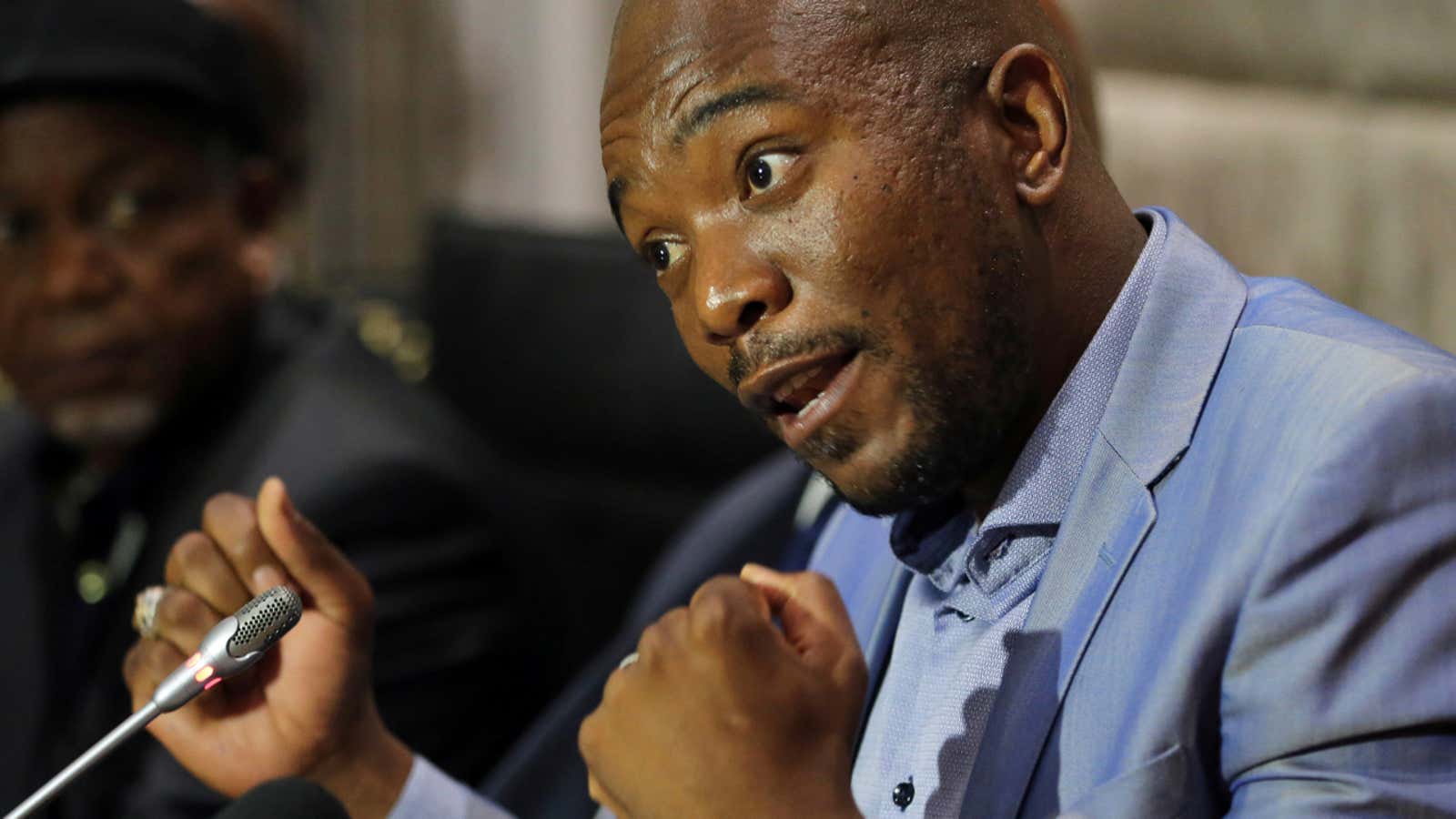South Africa’s main opposition leader Mmusi Maimane tried to visit detained Zambian opposition leader Hakainde Hichilema in May last year. He never got past immigration officials. The trip was an attempt to show that southern Africa’s normally weak political opposition movements can have strength in numbers by building a transnational coalition.
Maimane accused airport security of manhandling him and his aides. “The perception in general is that the opposition are enemies, and if you treat people like enemies you create this revolving door of hatred,” Maimane told Quartz, adding that it creates a culture of score settling.
In much of southern and East Africa, opposition parties don’t have the widespread support they need for the governing parties to take them seriously. In countries like South Africa, Botswana and Namibia, they compete against the parties formed by liberation movements which now dominate their political arenas as powerful ruling parties. In other countries, they simply don’t have the money to launch large-scale campaigns. Even worse, in some places, like Swaziland (or eSwatini as it’s now known), they cannot even organize without being harassed.
Despite regular elections, South Africa’s Maimane thinks democracy is under siege in the region. It is why he and others founded the United African Partnership for Democratic Change (UAPDC). The organization is a coalition of African opposition parties who aim to support each other and multiparty politics in their respective countries. Maimane—best known as the leader of South Africa’s main opposition party, the Democratic Alliance—is the current chair of the organization.
So far, the partnership hasn’t found strength in numbers, though.
Maimane is the first black leader of the Democratic Alliance in South Africa, a party traditionally viewed as representing the interests of the white minority. Any progress Maimane makes by appealing to black voters, is often followed by race-tinged scandals like the pro-colonial tweets of his predecessor Helen Zille. His attempts to position himself as the “Obama of Soweto” or a “mini-Mandela” have been derided by fellow politicians. Meanwhile, the Democratic Alliance’s efforts to woo the country’s poor by almost mimicking the ANC’s campaign style has failed to produce results at the polls
Racial segregation left deep economic and emotional scars across the region. It created bonds to liberation movements that opposition parties can’t seem to break. In South Africa it was Apartheid. In Angola, Mozambique and Zimbabwe it was their post-independence wars. In others, it was colonialism. Maimane, however, argues that opposition parties have a new issue over which to bond with voters today: pervasive poverty.
“Often what removes liberation parties, isn’t just a question of corruption or people’s votes,” Maimane says, but that the electorate feels “the pain of hunger.” Maimane speaks with the earnestness that makes him a good pastor but has yet to carry him to political victory. “We’ve got to ensure that there’s a deepening emotional connection on that issue.”
Opposition parties are sometimes too chaotic or self-involved to make that connection. Take Raila Odinga, Kenya’s main opposition leader and member of the UAPDC, who went as far as staging a mock inauguration to protest last year’s election result in Kenya. Weeks later he put it all behind him with a handshake, in a surprise about-turn. In Zimbabwe, the Movement for Democratic Change, seems unable to pull itself together for the upcoming election, after its founder, Morgan Tsvangirai, died in February. Internal party chaos like this could undermine the coalition of opposition parties’ aims, but Maimane says the organization will not splinter. Still, the unprofessionalism within parties isn’t helping, he says.
Factionalism, however, has dragged opposition politics down in the past. It’s just one of the reasons the voting public struggles to see opposition parties as viable alternatives. Polling by research network Afrobarometer showed even voters dismayed with how ruling parties were running government didn’t think opposition parties would do a better job.
Electoral systems in southern and East Africa skew resources to the winners, leaving opposition parties with less money for campaign season, and even less of a platform on which to gain, never mind prove, governance experience. It’s why opposition parties have struggled to win trust among their potential constituents, no matter how noble their slogans sound.
